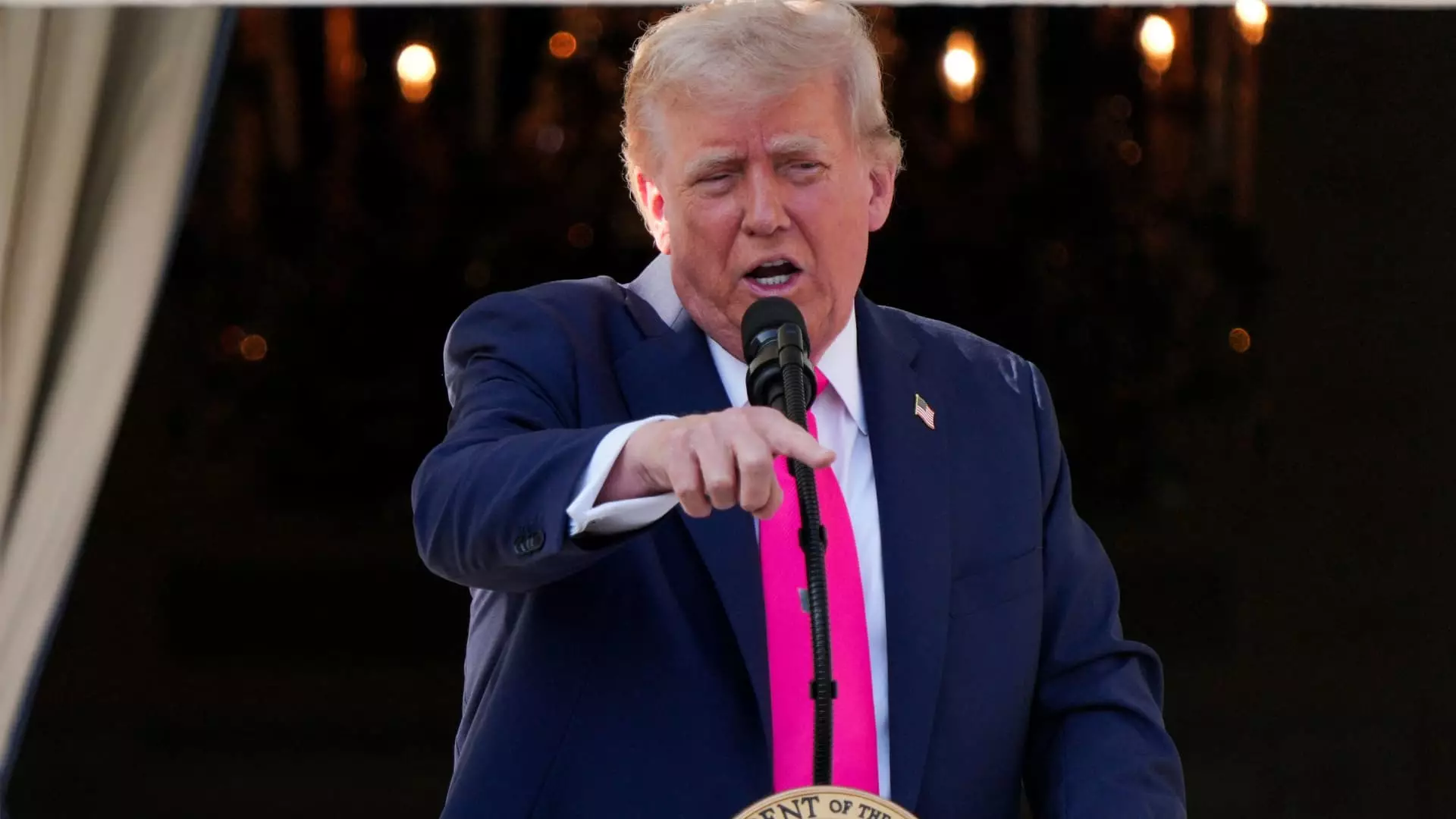In recent days, the United States has escalated its stance in the ongoing trade conflict by directly communicating tariff increases to twelve countries, cloaked in a tone that suggests coercion rather than cooperation. The move to send “take it or leave it” tariff offers signals a shift from open negotiations to an aggressive posture that dismisses mutual benefit. This approach is not just a negotiation tactic; it embodies a dangerous disregard for the interconnectedness of global economies. The deliberate opacity—refusing to disclose which nations are targeted—further amplifies a sense of brinkmanship, risking unnecessary damage to international relations and global markets.
This strategy underscores an alarming departure from traditional trade diplomacy rooted in dialogue and compromise. Instead of fostering mutual understanding, the Trump administration appears to leverage bluster and economic intimidation as tools, framing tariffs as a form of leverage rather than a punitive measure. This mindset neglects the fact that a responsible economic policy considers the well-being of all parties involved, recognizing that sustainable growth depends on fairness rather than unilateral enforcement.
The Consequences of a Trade War Ignored
What is most disturbing about these developments is the potential fallout from such provocative tactics. Markets have already been rattled, with volatility surging and confidence waning. The threat of tariffs reaching up to 70% on some goods indicates a brinkmanship that could spiral out of control. Historically, trade wars have inflicted devastating economic damage, from the 1930s Great Depression to more recent disruptions, illustrating that the long-term consequences far outweigh any short-term gains in protective tariffs.
Furthermore, the abrupt shift in strategy—considering tariffs far beyond the initially proposed 10%—demonstrates impatience and a reckless pursuit of victory at the expense of stability. It suggests that negotiations are more about muscle-flexing than genuine problem-solving. Countries like Japan, the EU, India, and Vietnam have all experienced setbacks, revealing a pattern of failed diplomacy driven by a zero-sum mentality. The potential for retaliatory measures only compounds the risk, potentially leading to a global cascade of economic decoupling that benefits no one and harms many.
The Flawed Logic of Tariffs as a Weapon
At the core of this contentious approach lies a fundamentally flawed assumption: that economic strength can be secured through unilateral protectionism. Such policies ignore the intricate web of global supply chains and international cooperation necessary for modern economic prosperity. Instead of addressing trade imbalances through dialogue, aggressive tariffs foster resentment and disconnect, risking a cycle of tit-for-tat measures that could cripple international trade networks.
The brief achievements—such as the UK deal and the Vietnam agreement—highlight that pragmatic diplomacy can yield results, but the overarching trend under the current administration seems driven more by political theatrics than substantive resolution. The failure to secure meaningful agreements with India and the stalling EU negotiations underscores that unilateral threats and bluster rarely produce lasting solutions. Instead, they breed mistrust and deprioritize the very foundations of economic collaboration.
The Path Forward: Rethinking Fairness and Cooperation
What needs urgent reevaluation is not just the tariffs themselves but the American approach to trade. A balanced, center-leaning liberal perspective advocates for a sustainable strategy where diplomacy, fairness, and mutual economic growth take precedence. Engaging partners in honest dialogue, addressing structural trade concerns through cooperative agreements, and respecting international norms should be the guiding principles—not bluffing, threats, or punitive tariffs.
The administration’s current course risks isolating the U.S. and deteriorating its standing as a global leader capable of fostering collaborative economic solutions. It is vital that policymakers remember that economic strength is most sustainably built through partnerships—not through aggressive tariffs and hostile negotiations. The path to a resilient global economy involves patience, understanding, and a recognition that long-term stability far outweighs the short-term leverage of tariff threats.


Leave a Reply